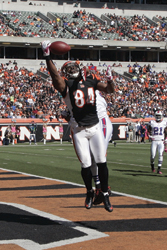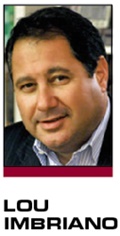The NFL television blackout policy is an archaic method of selling tickets. Perhaps at one time, prior to huge television deals, enormous naming-rights deals and oversized sponsorship agreements, the league could argue that it protected the teams and itself from freeloading fans who could watch the action on TV and not support their team with their wallets.
That was then, and this is an entirely new and improved NFL. The NFL is a moneymaking machine where the greater parts of the whole ensure safety and profitability for the weakest links in the chain.
Prior to 1973, all NFL home games were blacked out because it was believed that TV would prevent fans from heading to the stadium to watch the games and, more importantly, buy tickets. Pete Rozelle succumbed to the pressure of Congress and President (and Washington Redskins fan) Richard Nixon, and the 72-hour sellout rule came into effect. It allowed everyone to see what was hiding behind the curtain: Having home games on TV did not stop folks from going to the stadium of their favorite team on Sundays (and occasionally Monday nights). TV wasn’t the culprit; the team’s performance and how it was marketed was the conduit for lower ticket sales.
A recent statement from the NFL says, “The League’s blackout policy is designed to promote broad attendance and to make each game a special event. Anyone who has been at football games half-filled versus one packed with cheering fans will attest to the qualitative difference in the experience, regardless of the quality of play of the teams.” This statement is one that a sleight-of-hand magician would use to get his audience to look in a different direction. I don’t care how packed a stadium is, when your team is losing, the stadium goes dead quiet and the excitement wanes. Again, TV is not the culprit for lack of sellouts.
As a former chief marketing officer of an NFL team, I can find multiple reasons why having the games on TV means more to the bottom line of the team and the league than not airing the less-attended games.
 |
Cincinnati’s win over Buffalo on Oct. 2 was one of six home games blacked out last season.
Photo by: GETTY IMAGES
|
First and foremost, airing the games is promotion of the team and the league and helps build fan avidity and loyalty to the product. If the permeating thought is that a blacked-out game equals a bad TV broadcast, it does not. There have been many games that have been great contests resulting in victory for the home team that the majority of its fans never got to witness. So while blackouts are punishing your core fans, they are also not assisting in the conversion of a team’s less avid fan into a more interested and participating fan.
It also denies younger fans, who would not normally attend a game, exposure to the brand and begin the process of a lifetime of brand experiences. Even if you believe TV blackouts are a short-term solution, they have long-term negative effects on the avidity of a fan.
The entire concept of blacking out games is a form of punishment to fans, when they have not done anything wrong. This is a bad message to your consumer, not to mention deplorable customer service and fan relationship building. The message is that since the NFL is not getting its way, regardless of the team’s efforts, it will stomp its feet and take its ball and pout unless you do what it wants and come to games. It’s 2012 and the fans are educated consumers; they can’t and shouldn’t be treated that way.
Great relationship building would be to thank them and provide other mechanisms for them to want to come to games, perks and other special opportunities that provide good will and mimic winning. If you want your consumers to drink out of the NFL faucet, does it really make sense to shut off the spigot?
The NFL talks about in-stadium experience and excitement. Games that are not sold out allow teams to reward fans who are there. Ticket sales reps can go into the upper decks and give seat upgrades to the fans who came, not only thanking them for their support, but also making the experience one that they will want to come back and enjoy. This also helps pack the lower bowl to intensify the atmosphere and give a better showing to the TV side of the stadium.
Positive reinforcement and a fun experience will get fans to come back. There are many losing teams that create an atmosphere folks want to experience regardless of on-field performance. You want your fans to take this spectacular treatment viral in order to help sell tickets.
The NFL is a marketing machine, so why would it take away one of the most effective ways to promote its product and expose its brand? TV is one of the key components as to why the NFL is so popular and powerful. Taking it away is counterintuitive and, quite frankly, lazy. TV is an asset that promotes the concept of attending a game. It’s clearly time to stop thinking in black and white and to throw TV blackouts out with the big box TVs we used to own.
Lou Imbriano is CEO and president of TrinityOne Inc. (Trinity1.com) and author of “Winning the Customer: Turn Consumers into Fans and Get Them to Spend More” (McGraw-Hill, 2011). Follow him on Twitter @LouImbriano.





